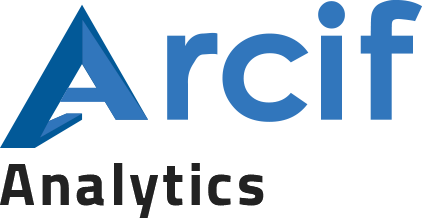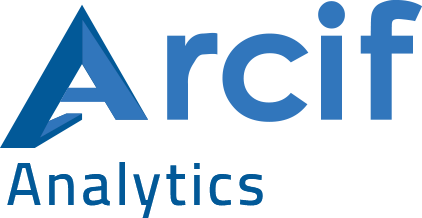For the First Time, launch of a Digital PDF Version of the
Annual “Arcif” Impact Factor Report 2024
The Arab Impact Factor and Citation Database “Arcif” / Knowledge Digital Databases is pleased to announce, for the first time, the launch of the annual report in a digital format, starting with the 2024 “Arcif” Report.
This report offers a unique and comprehensive collection of scientific data, including results of peer-reviewed Arab journals, rankings of countries, academic and research institutions, authors in the Arab world, and other valuable insights on Arab scientific production and its impact. It serves as a rich and distinctive resource in this field for researchers, academics, decision-makers, and those interested in the Arab scientific community.
Characteristics of ARCIF
Transparency
The scientific nature of ARCIF allows for a completely unambiguous process, in which access to all bibliographic data, sources of citations, selection criteria and actual results will be granted.
Independently
The results of ARCIF are not subject to any political, gender, or religious motives, only scientific and professional standards.
Neutrality and Objectivity
ARCIF relies solely on academic criteria, meaning complete non-alignment on any side.
Reports
ARCIF’s yearly reports grant readers a detailed look into the disciplines, universities, academic bodies, countries and researchers in the Arab world, based on general ranking and number of citations.
Comprehensiveness
Both in subjects and countries of origin , ARCIF’s ever expanding database hosts a wide array of results from all disciplines, originating from 20 Arab countries.
Reliability and Competency
All of ARCIF’s data is provided by original sources, our mandate for transparency ensures meticulousness
Facts and Figures
ARCIF’s report provides data on
1201
ARABIC PEER REVIEWED JOURNALS FOR 2024 REPORT
1155
ARABIC PEER REVIEWED JOURNALS FOR 2023 REPORT
1000
ARABIC PEER REVIEWED JOURNALS FOR 2022 REPORT
877
ARABIC PEER REVIEWED JOURNALS FOR 2021 REPORT
681
ARABIC PEER REVIEWED JOURNALS FOR 2020 REPORT
These reports are the results of a study and review
5k
ACADEMIC OR ARABIC RESEARCH JOURNALS
850K
ACADEMIC ARTICLES
1006
ARABIC UNIVERSITIES & INSTITUTIONS
85.2K
AUTHORS INFORMATION
19
ARAB STATES COVERED BY ARCIF
59
ACADEMIC DISCIPLINES
Quantitative Indicators & Data of ARCIF
Arcif’s database covers 1006 universities, research centers and Arab scientific societies
- 60.64% ARAB UNIVERSITIES & ACADEMIC INSTITUTIONS 60.64%
- 28.13% Research Centers 28.13%
- 6.46% Scientific Association 6.46%
- 2.49% Information institutions & Cultural entities 2.49%
- 0.89% Regional Organizations 0.89%
- 0.70% Private Publishers 0.70%
- 0.50% Governmental institutions & Ministries 0.50%
- 0.20% Others 0.20%
Subject Coverage by ARCIF
Finance, Economics and Business
This category covers journals that publish articles in various fields in similar volumes.
These fields are: Business and Business Administration, Economics, Commerce, Marketing, Finance and Banking, Accounting, General Administration, Islamic Banking and Islamic Economic policy.
Engineering sciences and Information Technology
This category covers journals that publish articles in various fields in similar volumes.
These fields are: Materials and Metals Science, Communications Engineering, Electrical Engineering, Civil Engineering, Mechanical Engineering, Highway Engineering, Architecture and various fields of Information Technology.
Humanities (Interdisciplinary
This category covers journals that publish articles in various fields in the humanities.
These fields are: Islamic Studies, Comparative Literature, Religion, History and Geography, Psychology, Arts, Languages, Literature, Philosophy, Arabic Language, Library and Information science.
Literature
This category covers journals that publish articles in the fields of literature or journals that clearly and specifically refer to themselves as a journal of literature.
These fields are: Literature, Comparative Literature, Arabic Language and Sciences, Languages.
Social sciences (Interdisciplinary)
This category covers journals that publish articles in various fields in similar volume and journals that clearly and specifically are referred to as social science journals – individually or with other fields such as social and human sciences.
These areas are: Information and Communication, Political Science, Sociology, Military sciences, Law, Education.
Medical sciences, Pharmacology and Health Sciences
This category covers journals that publish articles in various fields in similar volume.
These fields are: Psychiatry, Epidemiology, Diet and Nutrition, Nursing, Public Health, Dentistry, Human Medicine, Pharmacology, Exercise..
Natural sciences (Interdisciplinary)
This category covers journals that publish articles in various fields in similar volume.
These fields are: Veterinary Medicine, Biology, Mathematics, Earth, Water, Environment, Zoology, Astronomy, Physics, Chemistry, Botany, Agriculture, Science, Marine Science.
What is ARCIF?
ARCIF is a comprehensive database providing citations of peer reviewed academic journals in the Arab world. It provides reliable, integrated, and multidisciplinary data, linking the output and volume of citations to hundreds of thousands of articles published in Arabic, (or in the Arab world) in various disciplines.
ARCIF allows for access to view and discover the research data and its corresponding analysis. It also provides research and knowledge on research trends from over 60 specialties. It delivers high-quality scientific data and information from around 1006 Arab institutions that can be shared, analyzed and used in research or policy decisions. ARCIF’s commitment to ease of use allows for the possibility to rank journals and scientific articles by total cites, by author, by discipline, by affiliations and by many other search queries. In other words, ARCIF’s mission is to highlight and encourage the discovery of relationships between researchers, to stimulate research, to bring research findings and researchers closer, and to identify research patterns and emerging trends to deliver the Arab world’s academicians excellence..




